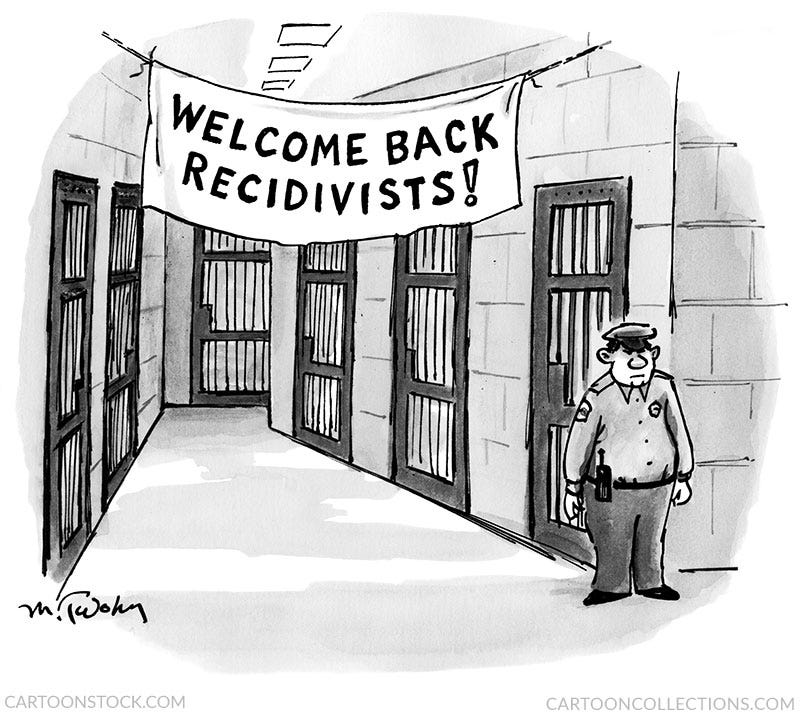Is this The ‘Government of All the Talents’ We’ve Been Waiting for?
Will we see a Labour Government that steps out of the shadow of British crises, or wastes the opportunity appeasing the politically centrist?
Amongst the long list of newly appointed ministers of this fresh Labour Government’s Cabinet, new names have shocked the media as they come from outside Westminster’s ranks. One includes Patrick Vallance, the Government’s Chief Scientific Advisor between 2018 and 2023, and now the Minister for Science. Perhaps the most surprising appointment was that of James Timpson, CEO of Timpson, as Prison Minister. He holds bold views on the prospects of future prison reform and prisoners who ’shouldn’t be there’, so with the appointment of radical leaders, will we see a Labour Government that steps out of the shadow of British crises, or wastes the opportunity appeasing the politically centrist?
Pointing to rehabilitation not punishment
Following fourteen years of Conservative rule the Criminal Justice System (CJS) balances the weight of overcrowded prisons, Crown Court backlogs stretching into the tens of thousands, and a public that believes leaving the European Convention on Human Rights is an answer to the ‘immigration problem’. Amidst this, rhetoric inherited from the Conservatives has pushed Starmer to question whether there are ‘too many prisoners and not enough prisons’, as if building prisons would ever be the sustainable response to an increasing prison population. Although the new Prime Minister has emphasised the role of pre-emptive intervention in young peoples’ lives, revolutionising the prison system does not seem to be in the cards.
The entrance of Timpson then to British politics in a role with a genuine capacity for reform is a signal of change in government. The new Prisons Minister has chaired the Prisons Reforms Trust since 2016 projecting communal values rather than corporal punishment, something we hope can be carried forth into his new role. Starmer is definitely not oblivious to Timpson’s radical approach to business and civic society, 10% of his firm’s workforce are ex-convicts, and the bottom-up approach to management places power into the hands of employees. Understanding that people are more than a resource but individuals with aspirations, means those who are often forgotten – like prisoners, have a second chance ‘to help them believe they can actually be good and decent people’. It has always been necessary for someone like Timpson: an expert, to support the government in transforming the prison system, so this crisis is ended not with new prisons but new strategies in prevention and rehabilitation.
New Law and Order
Arbitrary figures murk the vision of a safe Britain, prisons reaching full capacity rightfully frighten the public, and when the Conservative Party of ‘Law and Order’ (though they cannot uphold themselves to law and order), emphasise tough punishments for criminals and expanding the largest prison population in Western Europe, it suddenly becomes hard to sell prison reform to the public. This can be the only explanation as to why the new Labour government has sung a different tune post-election to that of last month’s dreadful ‘bang ‘em up and build more prisons’. Perhaps a new path can be carved out by this government and Timpson that holds promise. On a podcast by Channel 4 in February, Timpson cleared the mess obscuring the vision of brighter British prisons by referencing Dutch policy that has ‘shut half their prisons’ through community sentencing that keeps people at home, working, and ‘reading their kids bedtime stories’ – a reminder of what they turn their back on if they fall into crime. Timpson also said a third of prisoners should be jailed, another in some other form of state support, and for the final third prison becomes an entrance to an ‘offending cycle’. The country is ‘addicted’ to tough sentences and punishment, and ‘a government that’s brave, prepared to take politics out of sentencing’ is necessary. Timpson’s controversial appointment may be the creation of this Government of All the Talents. Could Starmer begin a prison reform that goes beyond the justice system? Our society has the potential to join the Dutch in reducing the stigma smeared onto ex-convicts and building an inclusive society where everyone can contribute and achieve regardless of their past.
The moves already being made
Like most of the country I knew long before an Exit Poll was released the Labour Party would sweep through the majority of British constituencies, what should have been a celebration of the end of Tory chaos has been merely a silence waiting upon the first actions of this government however. And it has been quite unsettling. The first moves show promise regardless, if not on prison reform, environmental and energy security. Already Labour has made plans to end the ban on new onshore windfarms in a sudden bout of green consciousness. New plans could see large windfarms signed off by the new Energy Security Secretary Ed Miliband without local council consultation, a win for environmentalists who’ve often had plans blocked by local councils. Miliband has vowed they will change the ‘direction’ of off-track Britain through commitments to our environment.
A little bit more on Starmer’s government
Starmer’s cabinet boasts the most female ministers in British history, and only two ministers were educated privately. Although ethnic diversity has fallen, a record 89 ethnic minority MPs were elected in this General Election. Will the cabinet of one black MP – David Lammy, reflect the multiplicity of beliefs held by Black British voters; will Diane Abbott’s voice be respected as a woman’s within Starmer’s party or will this be in contestation with his little employment of the black voice in cabinet. That is yet to be seen, how Will Starmer conflate the views of the growing far-right in parliament and public, with the existence of Black Britons, an existence that is antithetical to right-wing views? The Labour government has a long way to repair British faith in the government on all sides of the political spectrum; starting with listening to what the people need.
Information Sources:
https://www.theguardian.com/politics/article/2024/jul/06/starmer-non-political-ministers-government-of-all-talents-patrick-vallance-james-timpson
https://www.theguardian.com/environment/article/2024/jul/01/labour-will-take-global-lead-on-climate-action-ed-miliband-vows
https://www.spectator.co.uk/article/will-james-timpson-be-a-radical-prisons-minister/
https://www.theguardian.com/environment/article/2024/jul/08/labour-lifts-ban-onshore-windfarms-planning-policy
https://www.theguardian.com/politics/article/2024/jul/05/keir-starmer-cabinet-will-have-most-female-ministers-in-history
https://www.theguardian.com/politics/article/2024/jul/07/prison-reform-experts-hail-role-for-shoe-repair-ceo-james-timpson
https://www.theguardian.com/politics/article/2024/jul/06/keir-starmer-tribal-politics-four-uk-nations
https://www.theguardian.com/commentisfree/article/2024/jul/08/a-shoe-fixing-key-cutting-radical-why-labours-new-prisons-minister-is-perfect-for-the-job
https://www.theguardian.com/society/article/2024/may/21/police-chiefs-say-prison-crisis-in-england-and-wales-is-unsustainable








